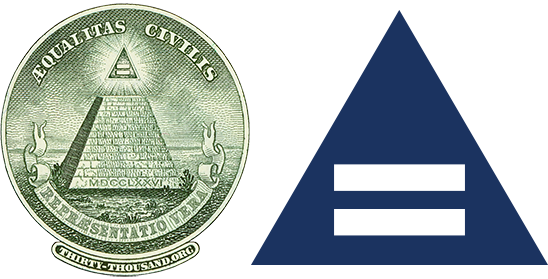It was supposed to be our House.
Restore Representative Government
Most Americans realize that our federal Representatives are appallingly unfaithful to their constituents and that our government is not working the way it should be. Though we debate numerous theories for this, the root cause goes overlooked: The House of Representatives is significantly undersized relative to the number of people they are supposed to represent. As a result, imperial-sized congressional districts have replaced the community-sized ones intended by the founders. Therefore, though our government has the form of a republic, it no longer has the substance of one. Anticipating that this could become a problem, the founders proposed a solution back in 1789 to prevent it from arising.
The importance of restoring the House of Representatives into a People’s House cannot be understated. In a recent report titled “The Case for Enlarging the House of Representatives”, the American Academy of Arts & Science makes this observation:
“[A] representative assembly can be considered crucial for national cohesion. In this conception, a legislature is much more than the sum of its individual members. Instead, it is the one and only grouping that is truly representative of the entire nation, and the one and only venue in which individuals with perspectives across the ideological and geographic spectrum engage and deliberate with each other. In the process, legislative assemblies help forge the identity of a larger nation. If no one perspective has a monopoly on the truth, and if all perspectives can find themselves somewhere in a national legislature, then the idea of representation is something transformative. Congress becomes more than just a lawmaking body. It becomes a forum that helps Americans see the diversity of the country and that this diversity comes together to build something greater than the sum of its parts.”
As explained in this website, representational enlargement will allow us to easily replace career politicians with citizen legislators. This non-partisan solution is the only way for Americans to achieve true representation in the House, thereby allowing the diversity of our country to come together “to build something greater than the sum of its parts”. It is now up to us to finally implement the solution proposed by the founders in order to achieve this vision and, quite literally, save our republic.
An explanation of the founders’ solution, along with additional arguments for representational enlargement, are provided in the following sections of this website.
Restore Representative Government
Most Americans realize that our federal Representatives are appallingly unfaithful to their constituents and that our government is not working the way it should be. Though we debate numerous theories for this, the root cause goes overlooked: The House of Representatives is significantly undersized relative to the number of people they are supposed to represent.
As explained in this website, representational enlargement will allow us to easily replace career politicians with citizen legislators. This non-partisan solution is the only way for Americans to achieve true representation in the House, thereby reflecting the true diversity of our country.
| SECTION | TOPIC |
|---|---|
| Section One: Restore The People’s House |
Our nation’s founders intended that the number of Representatives forever increase in direct proportion to the total population. However, for over a century, Congress has restricted our representation in the House to a political oligarchy of 435, which is far too few to faithfully represent over 330 million Americans! Read More |
| Section Two: Article the first of the Bill of Rights |
The very first amendment proposed in our Bill of Rights has never been ratified. The intended purpose of Article the first was to ensure that the number of Representatives would forever increase along with the total population. An arithmetically complex amendment, Article the first was affirmed by many states before a subtle, but fatal, defect in its wording eventually became evident. Read More |
| Section Three: Take Control Away From the Special Interest Groups |
The candidates running for 435 House seats raised nearly two billion dollars for the 2020 elections. Their voracious need for so much funding is an unavoidable result of waging political campaigns in massive congressional districts. Small congressional districts would virtually eliminate this problem. Read More |
| Section Four: Overcome the Incumbency Advantage |
We love our Representatives so much that, since 1968, their average reelection rate has been 94%. If it’s not love, then it must be the nearly insurmountable advantage afforded to incumbents by their massively oversized congressional districts. Fortunately, term limits are not the only solution. Read More |
| Section Five: Eliminate Gerrymandering to Achieve True Representation |
Huge congressional districts prevent our House of Representatives from being a true representation of the people. Communities of interest that are subsumed into massive electoral districts are effectively disenfranchised, thereby diminishing diversity in the House. Read More |
| Section Six: End the Political Duopoly of Congress |
Smaller congressional districts will not only lead to much greater diversity within the two parties, but it will also enable independent and third-party candidates to win House elections, thereby breaking the two-party monopoly over political power. Read More |
| Section Seven: Establish Citizen Equality Nationwide |
The House of Representatives is in egregious violation of the Constitution’s “One Person One Vote” requirement. Substantially increasing the number of congressional districts will restore representational equality in the federal house. Read More
|
| Section Eight: Restore Liberty and Federal Fiscal Responsibility |
Our vastly bloated federal government imperils both our individual liberties and financial well being. Government overreach is a result of congressmen who are no longer accountable to their constituents. Small single-member congressional districts will solve this problem. Read More |
| Section Nine: The House of Representatives is Scalable |
Regardless of its size, virtually all the work of the House is done in its committee rooms, not in the House Chamber. As it turns out, there are far too few Representatives to competently serve on over 2,600 committee assignments. In a larger House, there will be a much better pool from which to choose those best qualified to serve. Read More |
LATEST NEWS
Welcome to our new website. We hope you find it interesting and informative. Please contact us if you encounter any broken links or other technical problems
Explore The Site:





